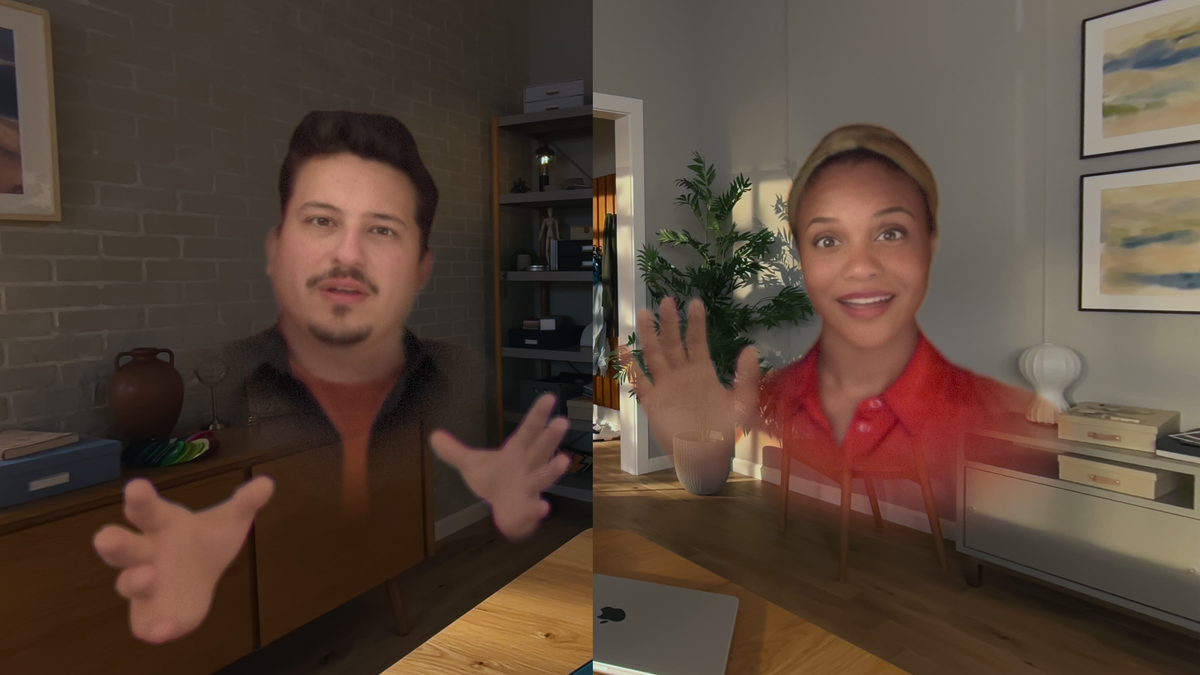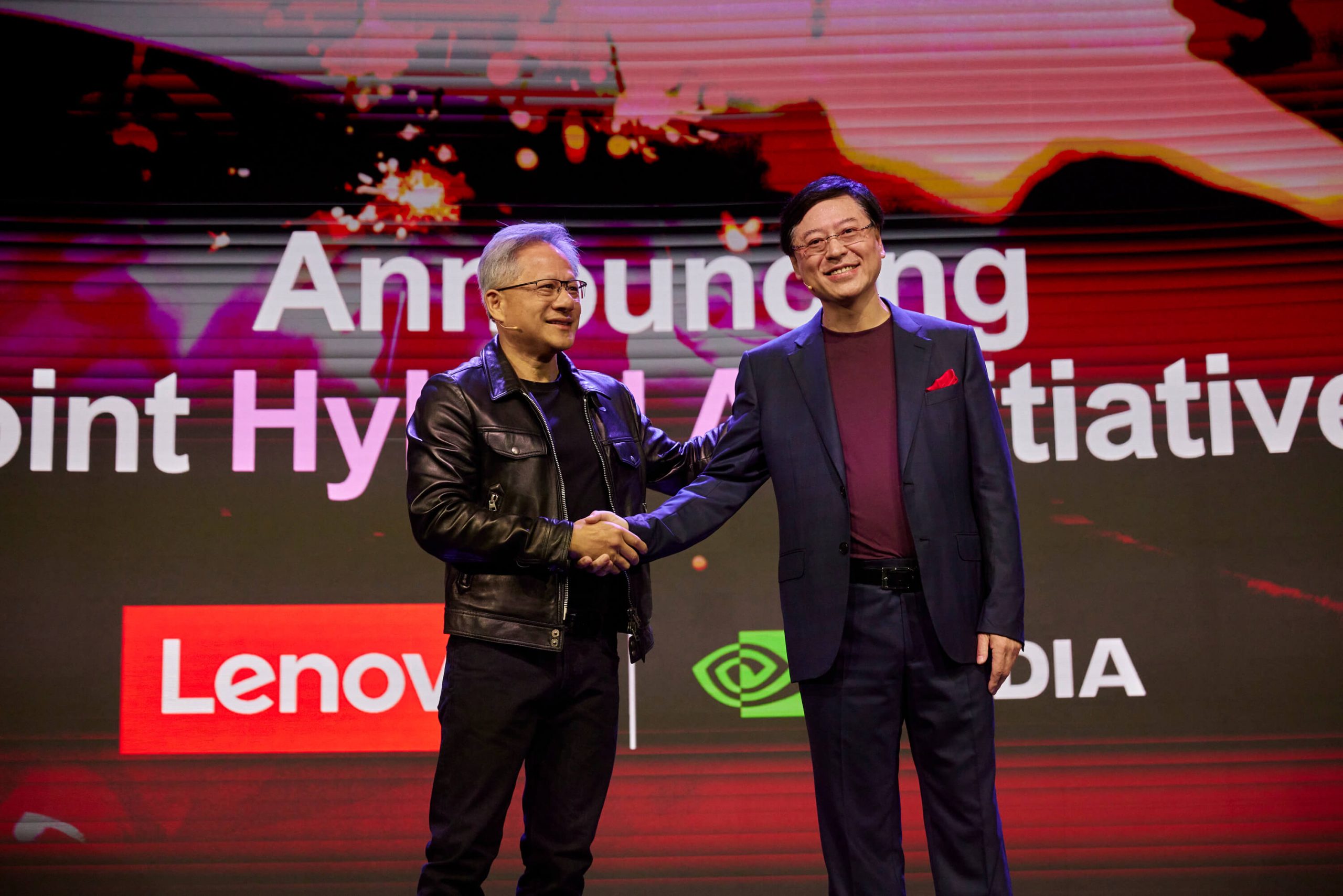The state-of-the-art Quantum Computing & Spatial Personas launch: XR news from Apple, Microsoft, Lenovo, NVIDIA and Magic Leap
Table of Contents
- Microsoft’s step forward in solving commercially significant issues with Quantum Computing
- Apple Spatial Personas for even more immersive collaboration
- Lenovo & NVIDIA: Generative AI for every enterprise
- Magic Leap Spectator to elevate capturing and showcasing of AR experiences
- About Lucid Reality Labs
The Q1 2024 for the XR industry started a new era for enterprise business. New pivotal trends are at the forefront: Quantum Computing, Spatial Personas, Spatial Content, and Enterprise-Tailored AI. Leading tech companies are investing heavily in advancing computing capabilities and data processing speed, tailoring AI features to meet specific enterprise needs, and enhancing the immersive nature of virtual environments for seamless collaboration. Microsoft is leveraging Quantum Computing to solve critical commercial challenges; Apple is redefining virtual communication with Spatial Personas, while Lenovo & NVIDIA empower enterprises with AI solutions customized for XR. Magic Leap is forging ahead in Spatial content creation, promising wide-ranging benefits for businesses across sectors. Let’s take a closer look at their impact on XR business!
Microsoft’s step forward in solving commercially significant issues with Quantum Computing
Microsoft and Quantinuum announced they achieved a breakthrough in quantum computing, running over 14,000 error-free experiments using their new hardware and software. This advancement allows for error checking and correction in logical qubits of data without data loss, building on the system’s exceptional performance. “A hybrid supercomputer that combines classical and quantum capabilities could solve commercially significant problems that are far too complex for classical computers,” says Microsoft, and both companies plan to invest in the development of this research, foreseeing immense opportunities for the business world with better and more accurate outcomes. Regarding the XR industry, we see numerous opportunities here:
- Quantum computing’s ability to handle complex calculations could greatly enhance XR simulations and graphics rendering, leading to more realistic and immersive experiences.
- Quantum computing can strengthen artificial intelligence #AI algorithms used in XR, enabling more sophisticated interactions, better object recognition, and enhanced spatial mapping.
- With the ability to process vast amounts of data more quickly than classical computers, quantum computers could reduce latency in XR applications, leading to smoother and more responsive experiences.
- The ability to simulate complex systems in XR can create more realistic virtual environments, which can be especially significant for healthcare and engineering, among many more.

Source: Apple
Apple Spatial Personas for even more immersive collaboration
More data processing efficiency means more opportunities for interaction and communication in XR. After launching Apple Vision Pro, this is one of the most momentous Apple focuses, as the company is now testing Spatial Persona (beta) on this headset. Utilizing this feature, if the participants of the FaceTime call have Apple Vision Pro on, it will allow them to interact with their peer’s Spatial Persona and hear them with Spatial Audio, creating a sensation like they are gathered in the same physical space. Spatial Personas appear in one’s space, so they can all move around, make eye contact, or even use SharePlay to collaborate and explore content. With a clear background, they feel embedded in the environment as real people and can display body language and hand gestures to create a more realistic experience. Spatial Personas can be used with up to five participants at once, creating new opportunities for more productive and efficient teamwork, business meetings, and more. At Lucid Reality Labs, we see immense potential for utilizing Spatial Personas in many domains, specifically in Healthcare, where the patient interacts with the practitioner. Imagine having a therapy session with Spatial Personas, where the patient can see their therapist’s face and expressions so as a patient, they feel a more robust human connection, and most importantly, the therapist can see his patient’s expressions allowing them to asses their emotional state more accurately.

Source: NVIDIA
Lenovo & NVIDIA: Generative AI for every enterprise
Lenovo together with NVIDIA aims to tailor Generative AI “to every enterprise and cloud.” Proclaiming the goal of bringing transformational capabilities to every industry, they have been working together on new hybrid AI solutions “empowering businesses to efficiently develop and deploy new AI use cases that drive innovation, digitalization, and growth.”Lenovo unveiled the expansion of the Lenovo ThinkSystem AI portfolio, featuring two new powerful 8-way NVIDIA GPU systems that are purpose-built to deliver massive computational capabilities with uncompromised power efficiency to accelerate AI implementation. This end-to-end reference architecture supports NVIDIA Omniverse Enterprise and many other leading VR applications and workflows. This advancement has the potential to significantly impact the XR business sector, enhancing computational power, enabling more sophisticated AI algorithms, reducing latency, and enhancing security in XR applications.

Source: Magic Leap
Magic Leap Spectator to elevate capturing and showcasing of AR experiences
Magic Leap released Spectator, a mobile app designed to stream spatial content that allows developers to record 3rd person views of augmented reality experiences. This game-changing tool will empower developers and enterprise users to showcase their AR experiences and reach a wider audience. Spectator simplifies the process of capturing and sharing mixed reality content by providing an easy-to-use mobile application interface. Users can quickly record videos or take photos of their Magic Leap 2 experiences, making it easier to share them with others or use them for video documentation, filming “how-to” videos, and broadcasting application content at live events or in collaborative meetings, and second-screen experiences for demos. While enhancing the capabilities of the Magic Leap 2 device, the Magic Leap Spectator app opens up new possibilities for content creation, sharing, collaboration, and interactive experiences in the XR space.The latest developments in the XR industry, with Microsoft investigating Quantum Computing, Apple launching Spatial Personas testing, Magic Leap’s Spatial Content implementation, and Lenovo and NVIDIA’s efforts to tailor AI’s limitless capabilities to every enterprise and cloud, exemplify a new era of XR for Enterprise solutions. At Lucid Reality Labs, we are excited to explore these innovations!
About Lucid Reality Labs
Lucid Reality Labs is a visionary XR development company that crafts complex immersive solutions through spatial technology – from concept & design to development & support, with a strategic focus on Healthcare, Life Science, Aerospace & Defense, and many more. We equip industries with the boundless potential of immersive technology. The Lucid Reality Labs’ Team believes that XR can contribute to the improvement of the quality of life for people around the globe. With our mission of disrupting global challenges with responsible technology, the company delivers solutions with impact that elevate industries with immersive capabilities. Check the award-winning use cases created by Lucid Reality Labs here.
Authors: Lucid Reality Labs marketing team & subject matter experts.
